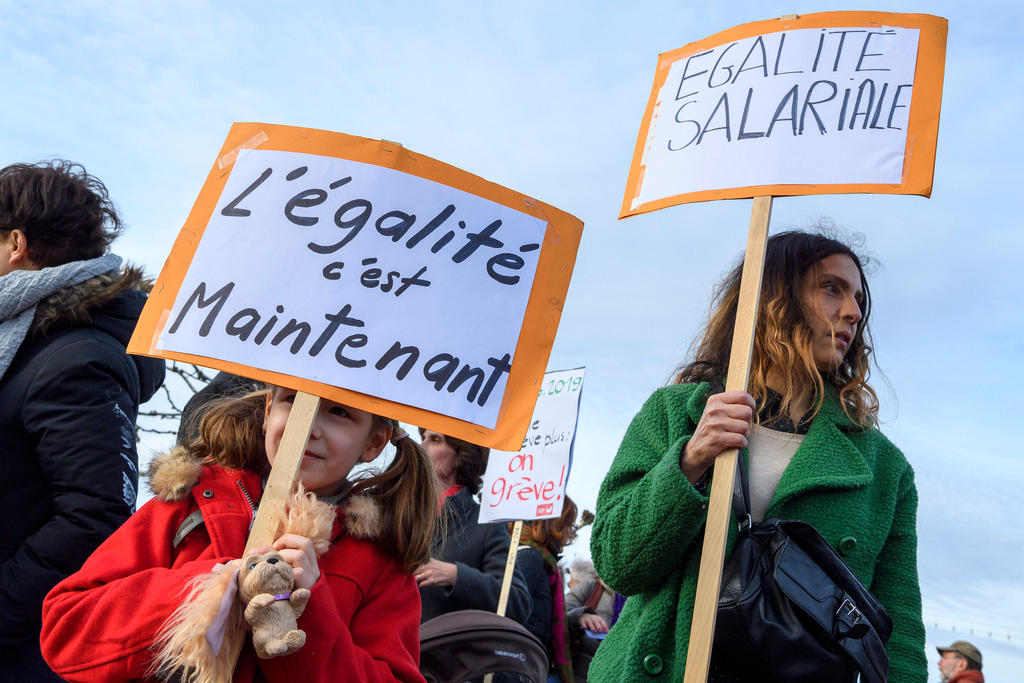
Swiss wage gap between genders remains bafflingly wide

The pay gap between men and women in Switzerland has increased slightly, amounting to hundreds of francs per month on average.
Men earned 19.6% more pay than female colleagues in 2016, compared to a 19.5% difference in 2012. While some of this gap can be explained by length of service, additional qualifications and the like, in more than four out of ten cases researchers could see no reason why women are paid less.
In terms of francs and centimes, women received CHF657 ($659) less per month than colleagues with exactly the same qualifications in 2016. In 2012 it was CHF585 less, according to a report published by the Federal Statistics OfficeExternal link on Thursday.
New law
It remains to be seen how the wage gap between the sexes will be affected by new legislation that was approved by parliament in December. From now on, companies with over 100 employees will have to do regular pay equity checks and make results known to staff and unions.
Pay discrepancy varies according to the type of job, the study found. It ranges from CHF327 in the hospitality sector to almost CHF1,300 in the credit and insurance sector. The wage gap is more prevalent among younger workers, affecting 58% of those under 30, and 43.5% of 30-to 49-year-olds. The difference is 36.6% among those over 50.
“The higher the management function, the greater the pay gap between women and men,” wrote the statistics office. More women are typically employed in the lowest wage segment, and more men in the highest.
In 2016, more than 60% of private sector jobs with a monthly full-time gross salary of less than CHF4,000 ($4,027) were filled by women. In positions with a gross wage of more than CHF8,000, the proportion of women was 28.2%. Just 18% of jobs paying over CHF16,000 a month were held by women – which was a marginal improvement over 2012.

More
Swiss parliament passes salary equality law

In compliance with the JTI standards
More: SWI swissinfo.ch certified by the Journalism Trust Initiative





























You can find an overview of ongoing debates with our journalists here . Please join us!
If you want to start a conversation about a topic raised in this article or want to report factual errors, email us at english@swissinfo.ch.